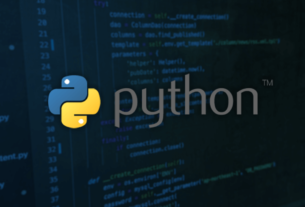Question or problem about Python programming:
I am using Python multiprocessing, more precisely
from multiprocessing import Pool p = Pool(15) args = [(df, config1), (df, config2), ...] #list of args - df is the same object in each tuple res = p.map_async(func, args) #func is some arbitrary function p.close() p.join()
This approach has a huge memory consumption; eating up pretty much all my RAM (at which point it gets extremely slow, hence making the multiprocessing pretty useless). I assume the problem is that df is a huge object (a large pandas dataframe) and it gets copied for each process. I have tried using multiprocessing.Value to share the dataframe without copying
shared_df = multiprocessing.Value(pandas.DataFrame, df) args = [(shared_df, config1), (shared_df, config2), ...]
(as suggested in Python multiprocessing shared memory), but that gives me TypeError: this type has no size (same as Sharing a complex object between Python processes?, to which I unfortunately don’t understand the answer).
I am using multiprocessing for the first time and maybe my understanding is not (yet) good enough. Is multiprocessing.Value actually even the right thing to use in this case? I have seen other suggestions (e.g. queue) but am by now a bit confused. What options are there to share memory, and which one would be best in this case?
How to solve the problem:
Solution 1:
The first argument to Value is typecode_or_type. That is defined as:
typecode_or_type determines the type of the returned object: it is
either a ctypes type or a one character typecode of the kind used by
the array module. *args is passed on to the constructor for the type.
Emphasis mine. So, you simply cannot put a pandas dataframe in a Value, it has to be a ctypes type.
You could instead use a multiprocessing.Manager to serve your singleton dataframe instance to all of your processes. There’s a few different ways to end up in the same place – probably the easiest is to just plop your dataframe into the manager’s Namespace.
from multiprocessing import Manager mgr = Manager() ns = mgr.Namespace() ns.df = my_dataframe # now just give your processes access to ns, i.e. most simply # p = Process(target=worker, args=(ns, work_unit))
Now your dataframe instance is accessible to any process that gets passed a reference to the Manager. Or just pass a reference to the Namespace, it’s cleaner.
One thing I didn’t/won’t cover is events and signaling – if your processes need to wait for others to finish executing, you’ll need to add that in. Here is a page with some Event examples which also cover with a bit more detail how to use the manager’s Namespace.
(note that none of this addresses whether multiprocessing is going to result in tangible performance benefits, this is just giving you the tools to explore that question)
Solution 2:
You can share a pandas dataframe between processes without any memory overhead by creating a data_handler child process. This process receives calls from the other children with specific data requests (i.e. a row, a specific cell, a slice etc..) from your very large dataframe object. Only the data_handler process keeps your dataframe in memory unlike a Manager like Namespace which causes the dataframe to be copied to all child processes. See below for a working example. This can be converted to pool.
Need a progress bar for this? see my answer here: https://stackoverflow.com/a/55305714/11186769
import time import Queue import numpy as np import pandas as pd import multiprocessing from random import randint #========================================================== # DATA HANDLER #========================================================== def data_handler( queue_c, queue_r, queue_d, n_processes ): # Create a big dataframe big_df = pd.DataFrame(np.random.randint( 0,100,size=(100, 4)), columns=list('ABCD')) # Handle data requests finished = 0 while finished < n_processes: try: # Get the index we sent in idx = queue_c.get(False) except Queue.Empty: continue else: if idx == 'finished': finished += 1 else: try: # Use the big_df here! B_data = big_df.loc[ idx, 'B' ] # Send back some data queue_r.put(B_data) except: pass # big_df may need to be deleted at the end. #import gc; del big_df; gc.collect() #========================================================== # PROCESS DATA #========================================================== def process_data( queue_c, queue_r, queue_d): data = [] # Save computer memory with a generator generator = ( randint(0,x) for x in range(100) ) for g in generator: """ Lets make a request by sending in the index of the data we want. Keep in mind you may receive another child processes return call, which is fine if order isnt important. """ #print(g) # Send an index value queue_c.put(g) # Handle the return call while True: try: return_call = queue_r.get(False) except Queue.Empty: continue else: data.append(return_call) break queue_c.put('finished') queue_d.put(data) #========================================================== # START MULTIPROCESSING #========================================================== def multiprocess( n_processes ): combined = [] processes = [] # Create queues queue_data = multiprocessing.Queue() queue_call = multiprocessing.Queue() queue_receive = multiprocessing.Queue() for process in range(n_processes): if process == 0: # Load your data_handler once here p = multiprocessing.Process(target = data_handler, args=(queue_call, queue_receive, queue_data, n_processes)) processes.append(p) p.start() p = multiprocessing.Process(target = process_data, args=(queue_call, queue_receive, queue_data)) processes.append(p) p.start() for i in range(n_processes): data_list = queue_data.get() combined += data_list for p in processes: p.join() # Your B values print(combined) if __name__ == "__main__": multiprocess( n_processes = 4 )
Solution 3:
You can use Array instead of Value for storing your dataframe.
The solution below converts a pandas dataframe to an object that stores its data in shared memory:
import numpy as np import pandas as pd import multiprocessing as mp import ctypes # the origingal dataframe is df, store the columns/dtypes pairs df_dtypes_dict = dict(list(zip(df.columns, df.dtypes))) # declare a shared Array with data from df mparr = mp.Array(ctypes.c_double, df.values.reshape(-1)) # create a new df based on the shared array df_shared = pd.DataFrame(np.frombuffer(mparr.get_obj()).reshape(df.shape), columns=df.columns).astype(df_dtypes_dict)
If now you share df_shared across processes, no additional copies will be made. For you case:
pool = mp.Pool(15) def fun(config): # df_shared is global to the script df_shared.apply(config) # whatever compute you do with df/config config_list = [config1, config2] res = p.map_async(fun, config_list) p.close() p.join()
This is also particularly useful if you use pandarallel, for example:
# this will not explode in memory from pandarallel import pandarallel pandarallel.initialize() df_shared.parallel_apply(your_fun, axis=1)
Note: with this solution you end up with two dataframes (df and df_shared), which consume twice the memory and are long to initialise. It might be possible to read the data directly in shared memory.



